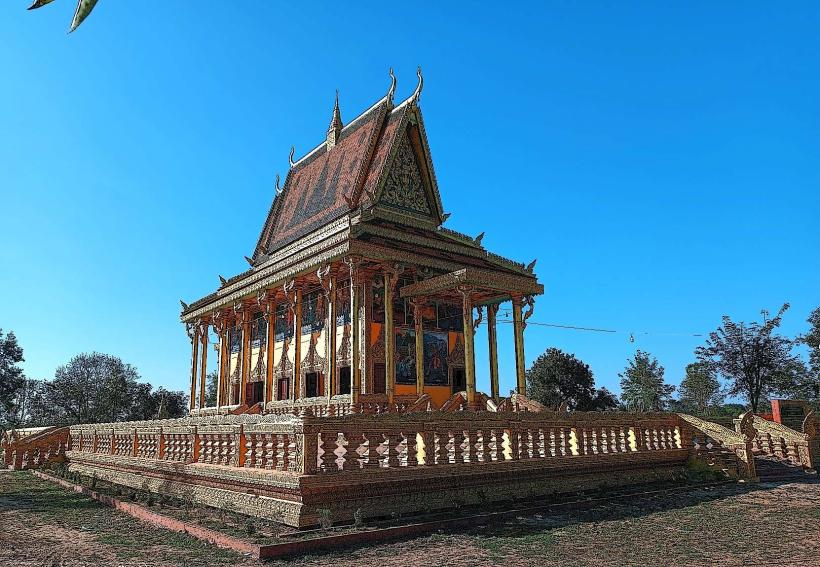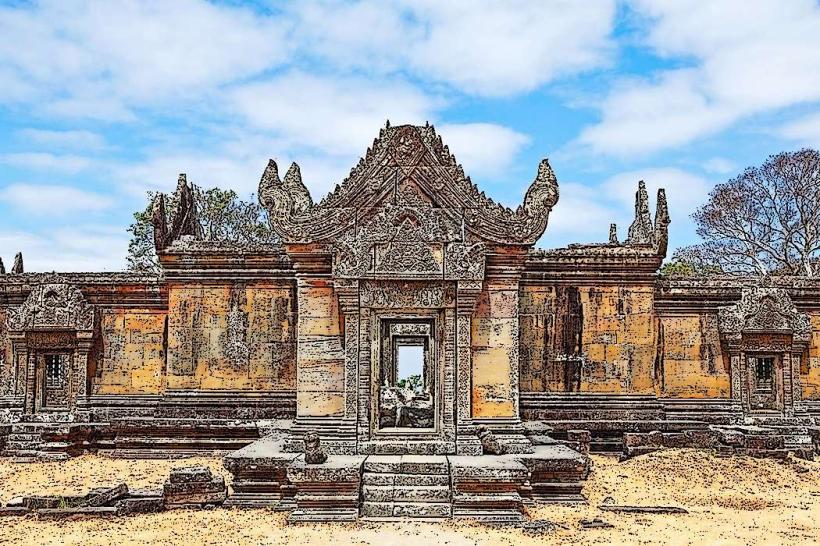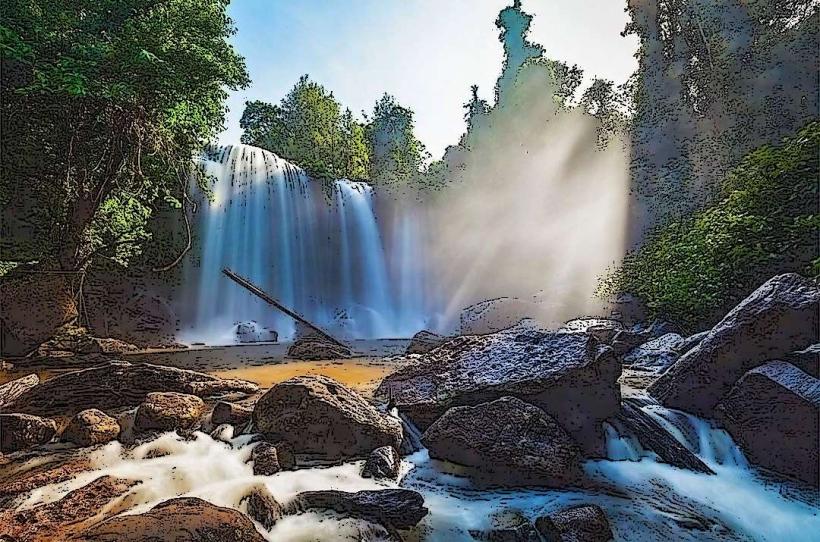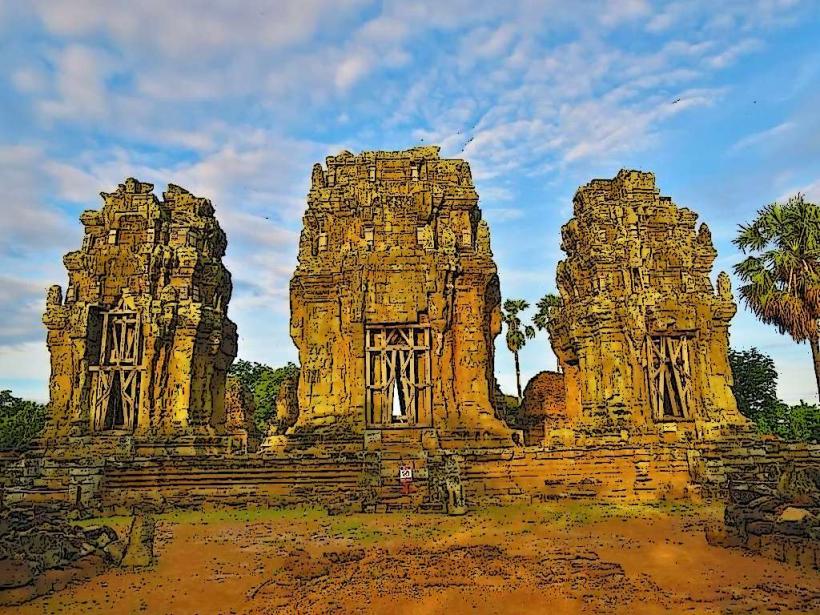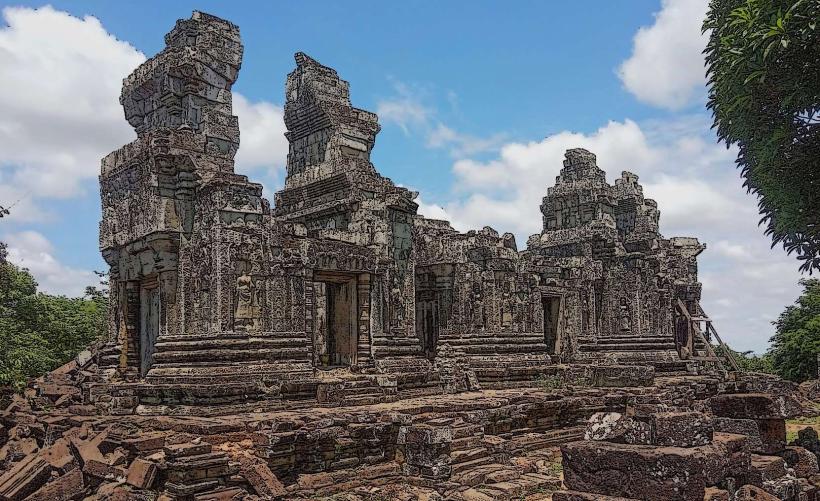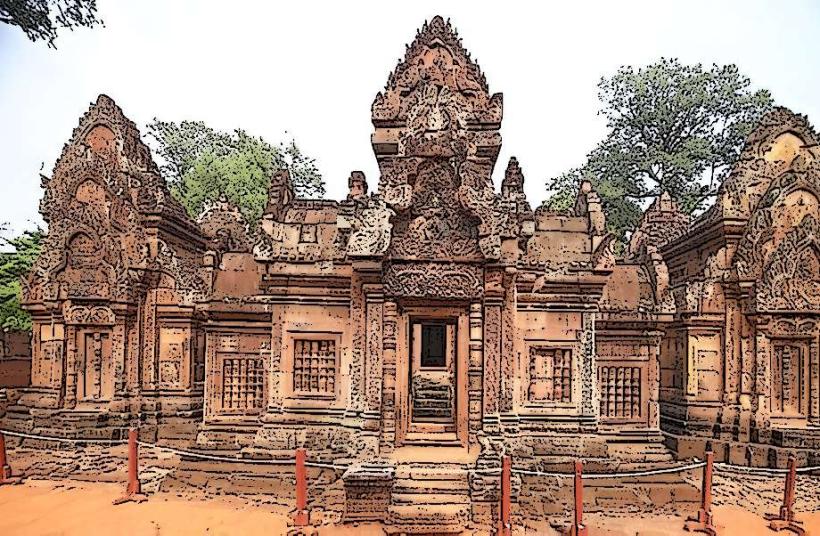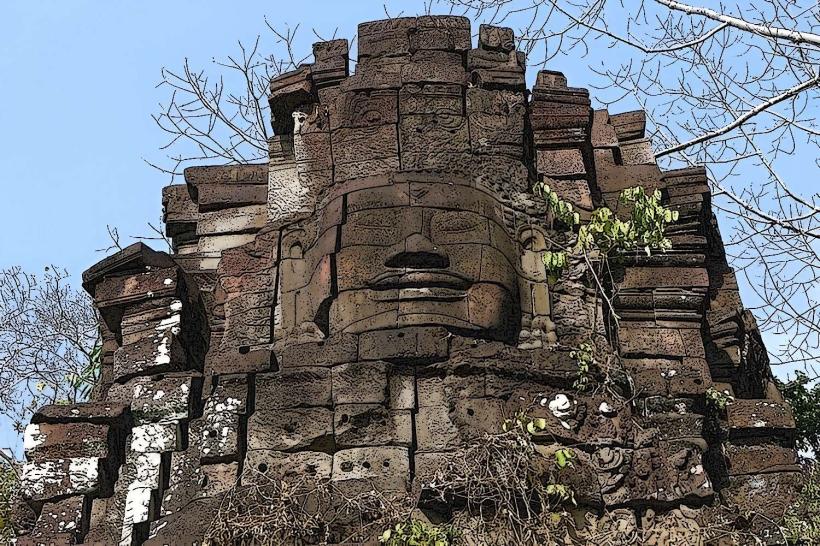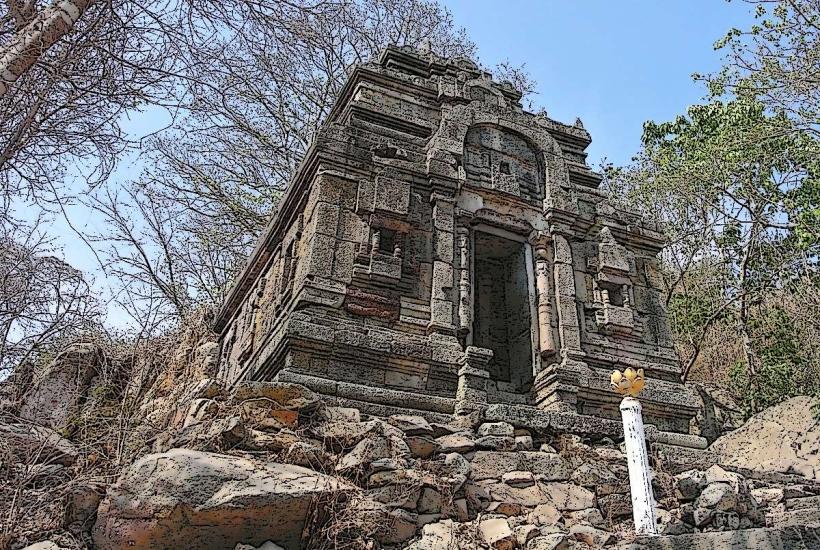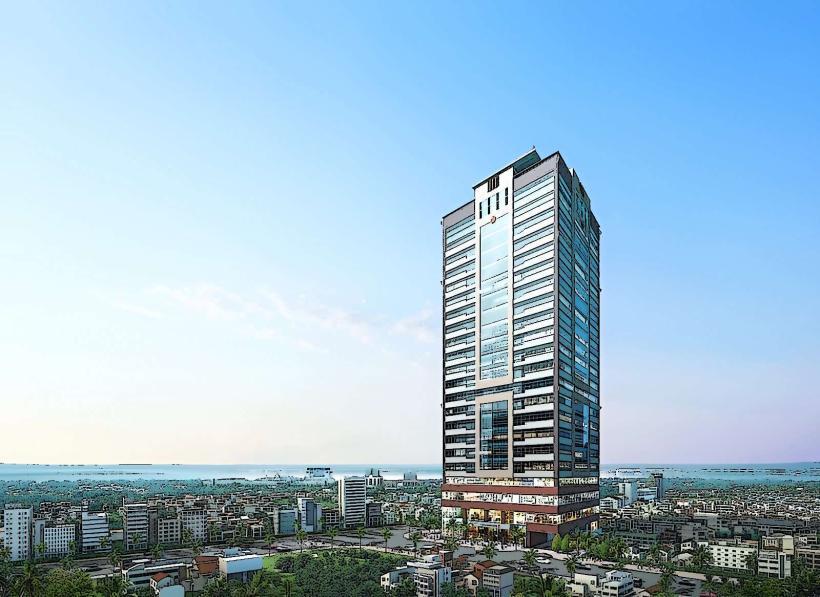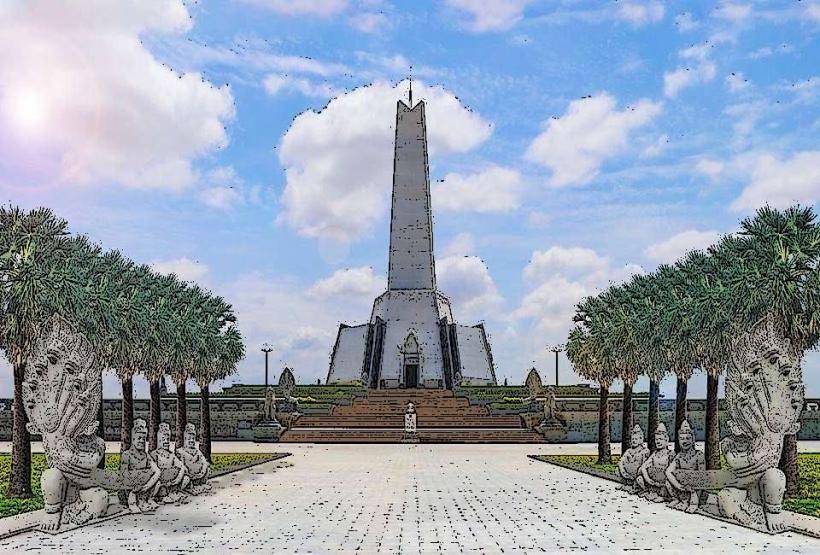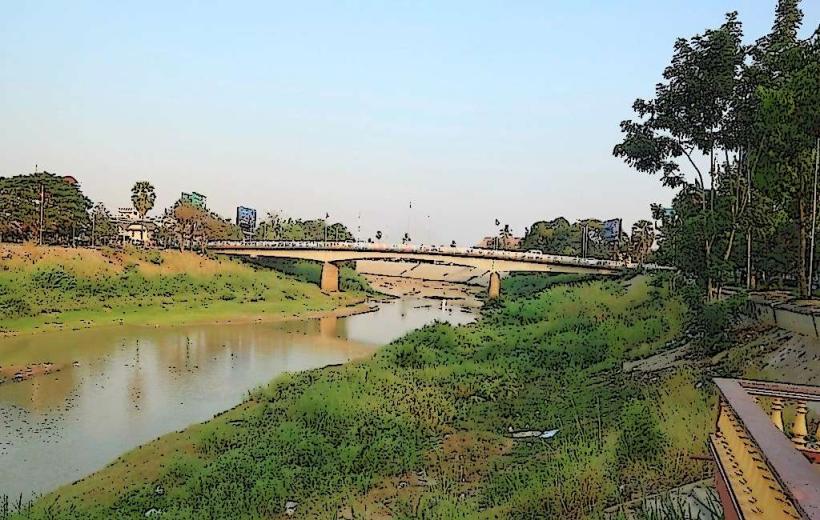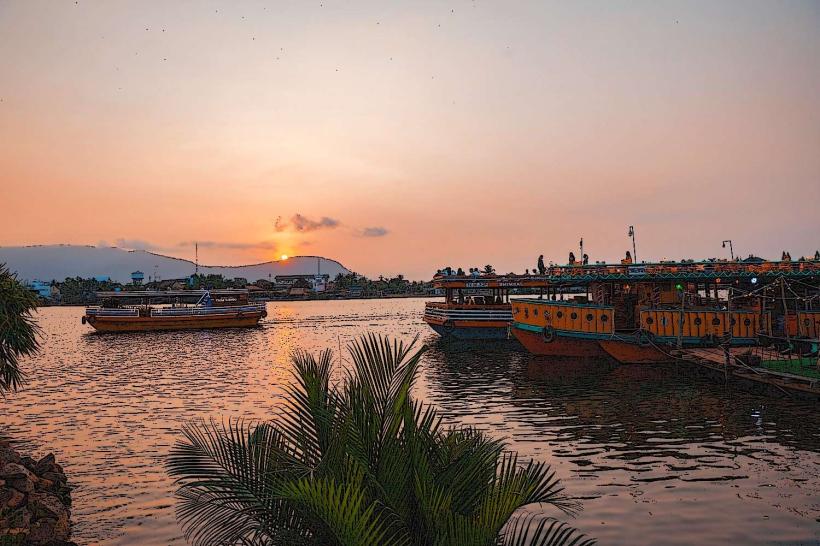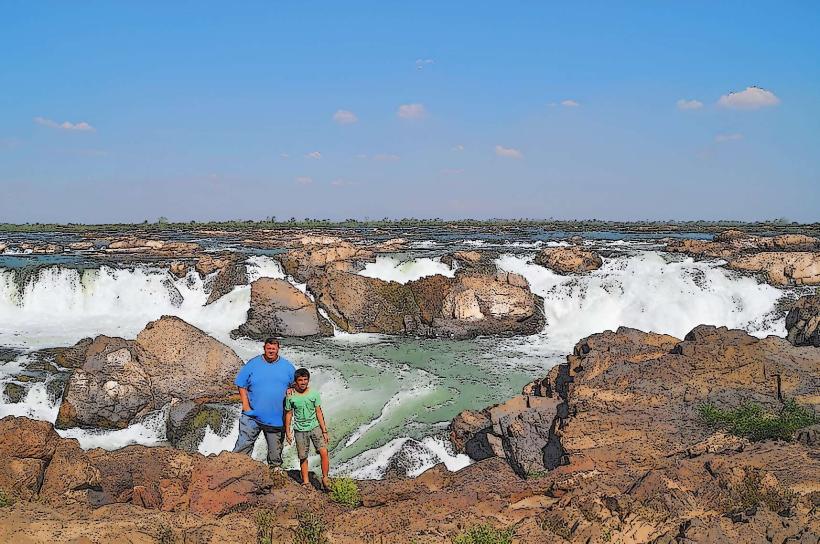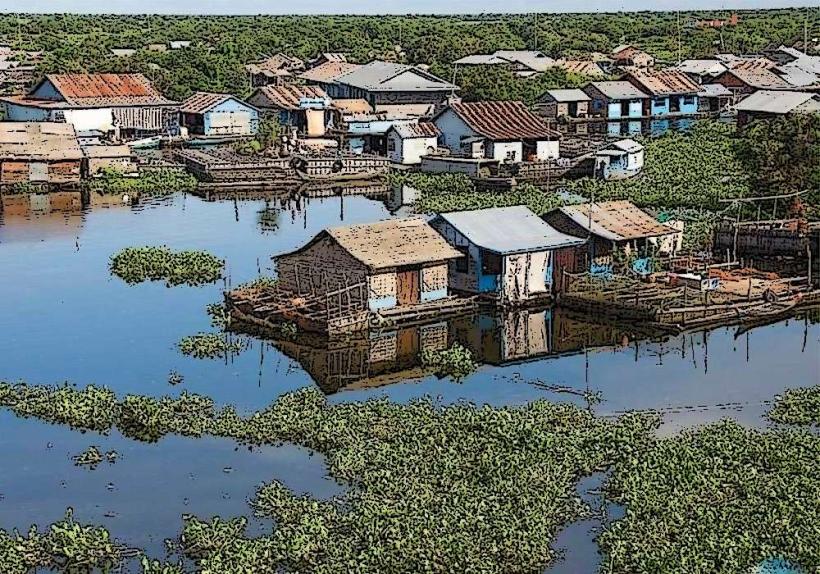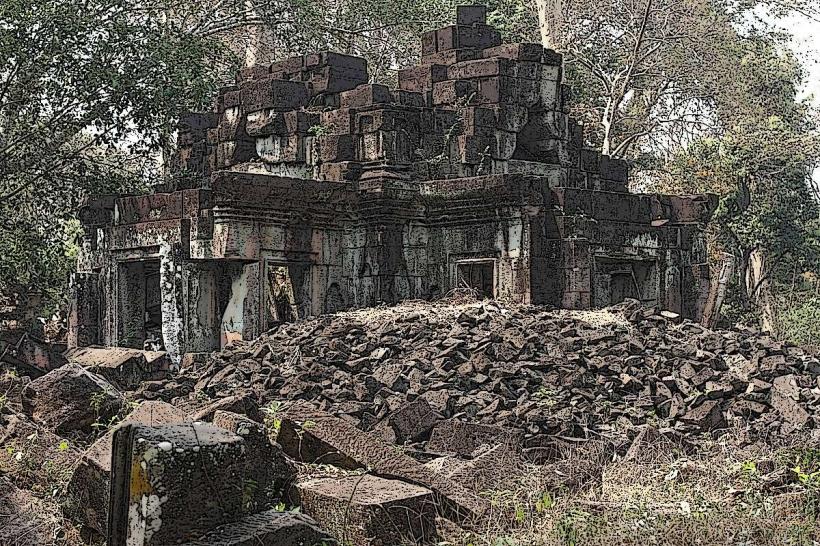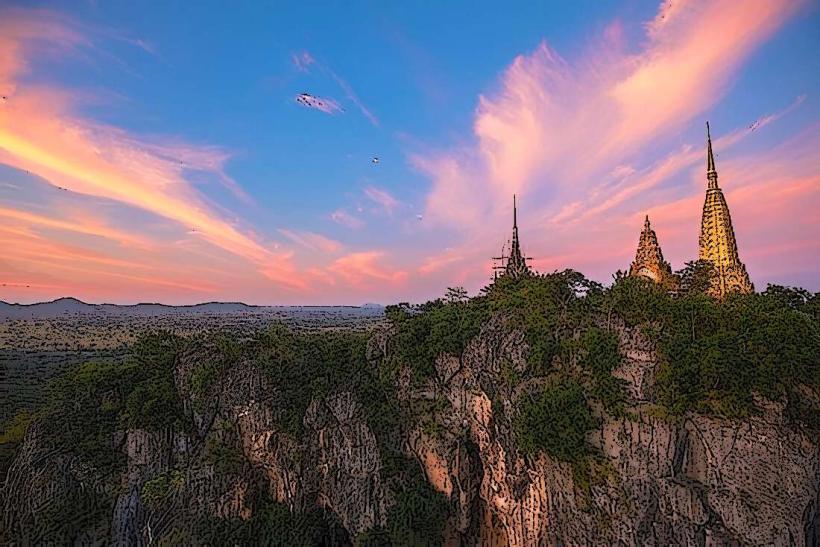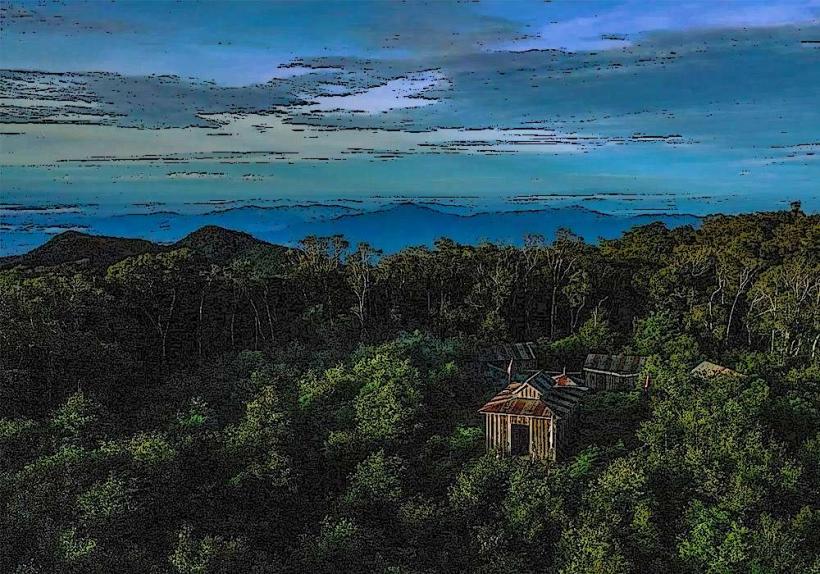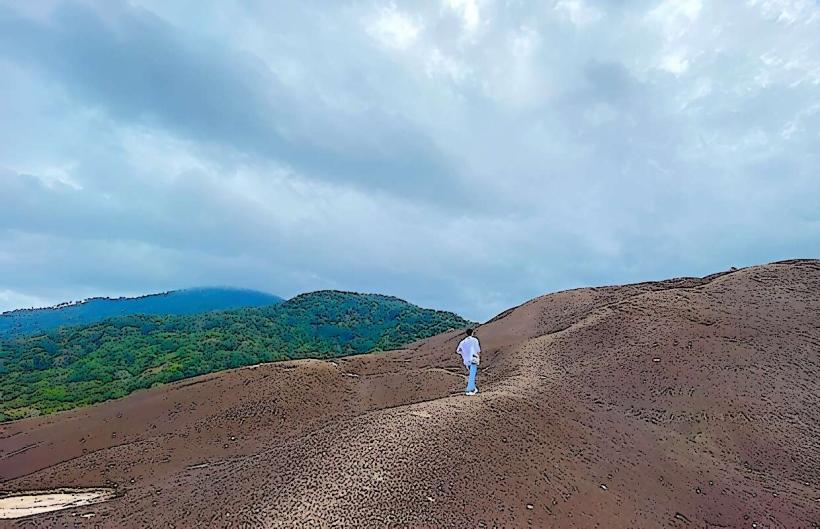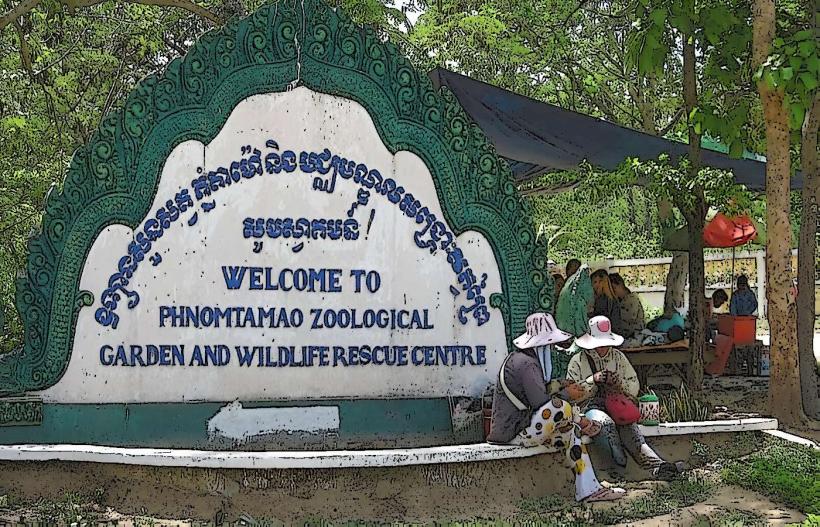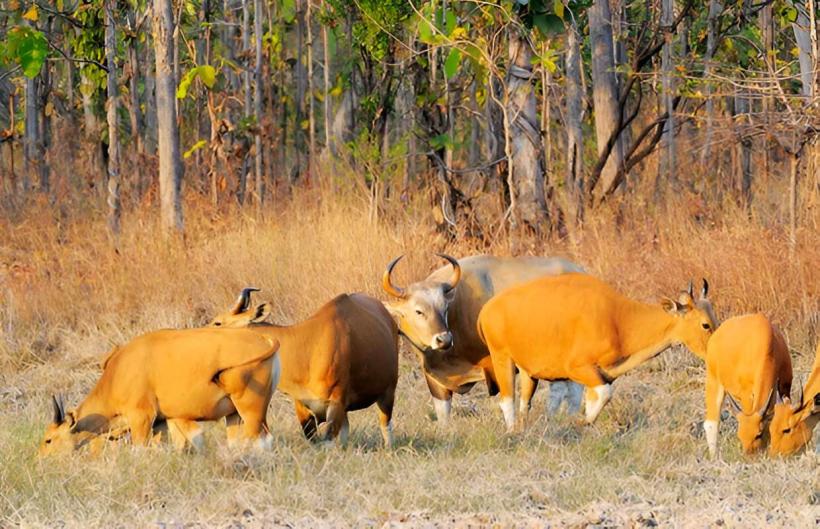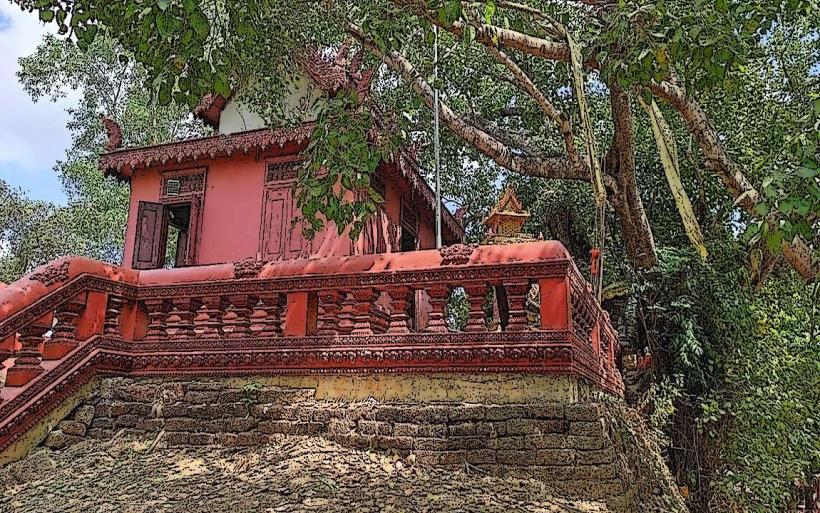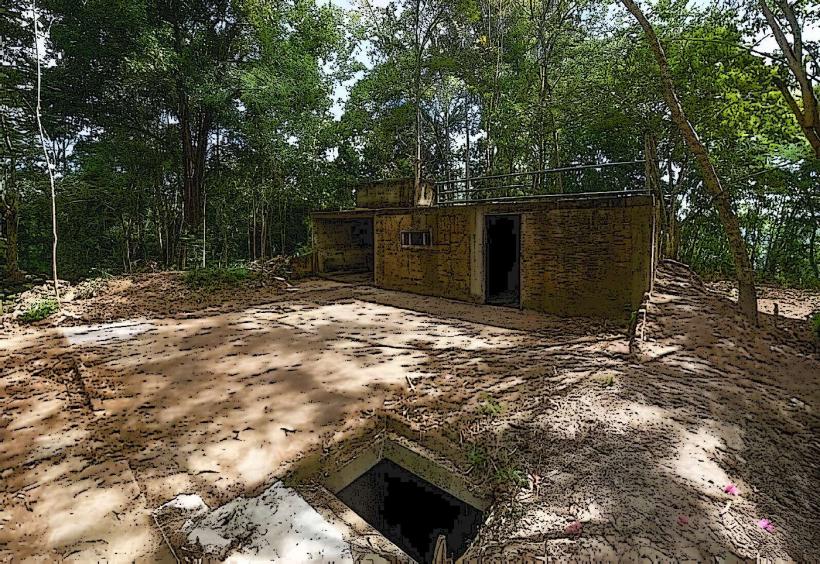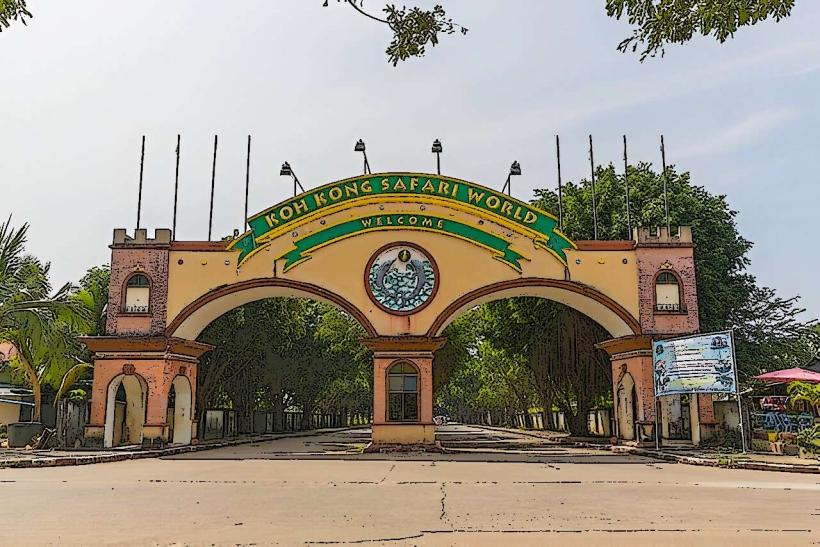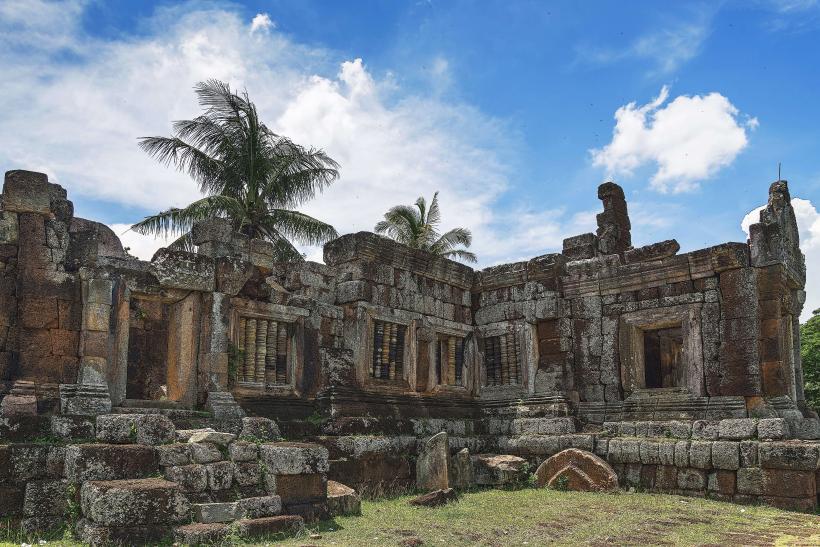Information
Landmark: Ba PhnomCity: Cambodia Province
Country: Cambodia
Continent: Asia
Ba Phnom, Cambodia Province, Cambodia, Asia
Ba Phnom is a historical and archaeological site located in the Prey Veng Province of Cambodia, about 50 kilometers southeast of Phnom Penh. It is one of the significant yet lesser-known ancient temples of Cambodia, offering a glimpse into the country's Angkorian period and religious history. While not as famous as other temples like Angkor Wat, Ba Phnom holds importance in understanding Cambodia’s cultural heritage.
Historical Significance
- Ba Phnom is thought to have been constructed during the 7th to 8th century under the rule of the Chenla Kingdom or early Angkorian Empire. It is believed to have been built as a Hindu temple, likely dedicated to the god Shiva, based on the iconography and religious features of the site.
- The site is known for its distinctive architectural style, which is a mix of influences from the Chenla period and the early stages of the Angkorian architectural tradition. It reflects the development of religious architecture before the monumental temples of the Angkorian golden age.
Temple and Structure
Ba Phnom consists of a mountain temple, with structures that are partially in ruins, overgrown with vegetation, and scattered stone remains. The main temple structure is located on a hill, offering a view of the surrounding landscape. This location is characteristic of many Angkorian temples, where the temple’s placement on a hill or elevated area symbolizes the connection between the heavens and the earth.
The temple itself is relatively simple, with a series of stone platforms and remnants of shrines. Although the site does not have the grandeur of Angkor Wat or Bayon, the remains give insight into the early Khmer architectural style and religious practices.
The temple also has stone carvings and inscriptions, though these are more fragmentary compared to the highly detailed carvings found in Angkor.
Religious Context
While the religious affiliation of Ba Phnom is not definitively known, many believe it was initially built as a Hindu shrine, likely dedicated to Shiva or other deities from the Hindu pantheon. Over time, however, it might have been repurposed for Buddhist practices, as is common in many Angkorian-era temples.
The transition from Hinduism to Buddhism in Cambodia around the 9th to 12th centuries was a gradual process, and Ba Phnom may have experienced a similar shift.
Ba Phnom as a Pilgrimage Site
- Ba Phnom is considered a local pilgrimage site for Cambodians, particularly those from the Prey Veng and surrounding provinces. Many visitors come to pray and make offerings at the site, particularly during important Buddhist festivals and holidays. The mountain is believed to have spiritual significance, and it is often visited for its tranquil environment.
Current Condition
- Ba Phnom is relatively unrestored compared to major Angkorian sites like Angkor Wat, but it still retains some architectural features and historical charm. The site has been largely neglected over the centuries, resulting in vegetation overgrowth and erosion. Nonetheless, the site is still considered an important cultural asset.
- Despite its modest appearance, Ba Phnom is a valuable archaeological site that contributes to understanding Cambodia’s early Hindu and Buddhist temple traditions. The site remains a symbol of the evolution of religious architecture and cultural practices during the pre-Angkorian and early Angkorian periods.
Access and Visitor Experience
Ba Phnom is accessible by road from Phnom Penh, making it a relatively easy day trip for those interested in exploring less-visited historical sites in Cambodia.
Visitors can climb the small hill where the temple is located, offering scenic views of the surrounding countryside. The site’s serene atmosphere and scenic landscape make it an attractive destination for both historical exploration and religious reflection.
The temple is often visited by locals for spiritual purposes or as part of cultural celebrations. It’s relatively quiet, providing a peaceful alternative to more crowded tourist spots.
Cultural and Historical Context
The Ba Phnom temple is an example of the early stages of Khmer architectural evolution. While not on the scale of the Angkorian monuments, it marks a significant development in religious and cultural traditions in Cambodia. The site reflects both Chenla influences and the early Khmer use of temples as part of religious rituals and as symbols of royal power and authority.
The influence of both Hinduism and Buddhism in the region can be seen in the evolution of the site and its associated religious practices. The site serves as a reminder of the early days of the Khmer Empire and the profound influence that religion and spirituality had on shaping both the landscape and the social structure of the time.
Conclusion
While not as widely recognized as other Cambodian temples, Ba Phnom offers an interesting and quiet glimpse into the early history of the Khmer Empire. Its mountainous setting, relatively simple yet fascinating temple remains, and local religious significance make it an important site for understanding the spiritual and architectural evolution in Cambodia. Visitors to Ba Phnom can enjoy both the historical insights and the peaceful, contemplative atmosphere that the site provides.

